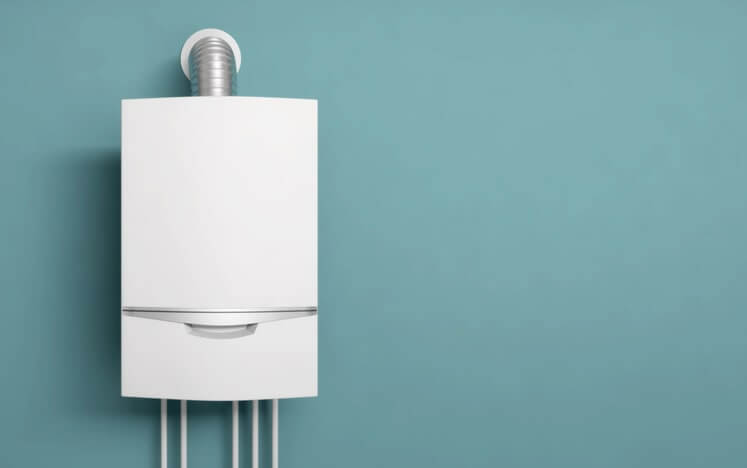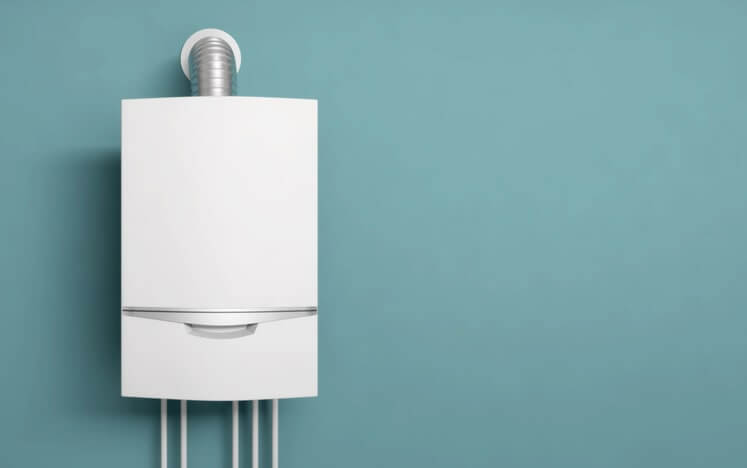What Homeowners Need to Know About the New Federal Water Heater Rule
The U.S. Department of Energy (DOE) recently finalized updated energy efficiency standards for residential water heaters, sparking questions and concerns among homeowners. These rules, set to take effect in 2029, aim to reduce energy consumption and lower utility bills while addressing environmental concerns. Modernize is here to help you understand what this means. Here’s what you need to know to understand the potential impact on your household.

The Basics of the New Rule
Starting in 2029, most newly manufactured water heaters will need to comply with stricter efficiency standards:
Electric water heaters will be required to use heat pump technology.
Gas-fired water heaters must implement condensing technology to enhance efficiency.
The DOE estimates that these measures will save American households roughly $7.6 billion annually on energy and water bills. Over 30 years, these standards are expected to cut carbon dioxide emissions by 332 million metric tons — equivalent to the combined annual emissions of nearly 43 million homes. “These standards are a win for consumers and the environment,” said a DOE spokesperson, emphasizing the long-term benefits for both homeowners and the planet.
Cost Savings vs. Upfront Costs
One of the main selling points of the new rule is its promise of significant cost savings over time. According to the DOE, households could save up to $558 annually by reducing water heater energy consumption. Additionally, the energy-efficient models are expected to use 24% less electricity in heating water systems, potentially extending the lifespan of your appliances.
However, critics are concerned about the upfront costs of these high-efficiency units, particularly for low-income families and seniors. Gas-fired condensing models and electric heat pump water heaters tend to have higher initial price tags compared to traditional models. While existing water heaters are not affected by the rule, homeowners replacing their units after 2029 may face steeper costs.
No Ban on Natural Gas Water Heaters
Contrary to some reports, the new regulations do not ban natural gas water heaters. Instead, they require manufacturers to produce more efficient models. Homeowners can continue using their existing systems and are not obligated to upgrade unless replacing an old unit after 2029.
Why This Matters for Homeowners
These new standards are part of a broader initiative by the Biden administration to improve energy efficiency across household appliances, including gas stoves and furnaces. While the environmental benefits are clear, the potential financial burden has left some homeowners worried.
Industry experts recommend that homeowners:
- Plan Ahead for Replacements: If your current water heater is nearing the end of its lifespan, consider upgrading to a more efficient model now to avoid potential price increases.
- Explore Incentives: Federal and state programs may offer rebates or tax credits for purchasing energy-efficient appliances.
- Understand Your Options: If you prefer natural gas water heaters, rest assured that efficient options will remain available after 2029. Evaluate the pros and cons of condensing technology to ensure it fits your needs.
Final Thoughts
While the new DOE standards aim to save money and reduce environmental impact, the transition to high-efficiency water heaters could bring challenges for some homeowners. By planning ahead and staying informed, you can make choices that align with your household’s needs and budget.
The post Federal Water Heater Rule: How Does it Affect You? appeared first on Modernize.

